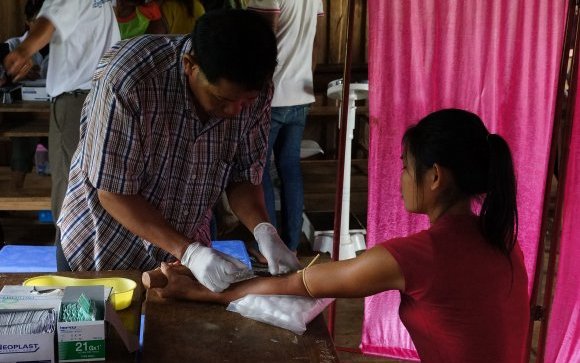Our work
Currently, IDDO has eight active areas of research work: COVID-19, malaria, febrile illness, Ebola, visceral leishmaniasis, medicine quality, schistosomiasis/ soil-transmitted helminthiases, and Chagas disease. More are already in development or being scoped for feasibility.

Our vision is a healthy future for the world’s most at-risk populations, realised through global scientific partnerships.
Our mission is to accelerate better treatment and control of poverty-related infectious diseases by generating research evidence through data re-use, putting the communities most affected at the centre of our global collaborations.
Infectious diseases disproportionately impact low- and middle-income countries (LMICs). IDDO works with researchers based in LMICs to develop research agendas and collaborative studies that address the priorities of the communities affected by these diseases. This approach supports two-way capacity strengthening, equitable sharing of data and resources, and sustainable development of treatment and control programs that translate data into evidence that improves outcomes for patients worldwide.
IDDO is committed to ensuring that its infrastructure and systems boost the findability, accessibility, interoperability, and re-use of data in accordance with FAIR principles to facilitate the use of existing data to answer new research questions and maximise the production of new knowledge.
IDDO aims to:
- Deliver an accessible and trusted infectious disease data platform which acts as the central repository for evidence of optimal management and treatment efficacy for selected infectious diseases;
- Undertake collaborative data analysis to address priority questions in infectious diseases research;
- Gather and share the best clinical research practices to improve data capture and the management and integration of clinical, pharmacological/ pharmacometric and laboratory based studies;
- Develop policies to establish fair conditions of use and appropriate recognition of data contributors, so that data can be made available for effective and responsible data sharing;
- Support the delivery of the Sustainable Development Goals, particularly the commitment to: "… equally accelerate the pace of progress made in fighting malaria, HIV/AIDS, tuberculosis, hepatitis, Ebola and other communicable diseases and epidemics, including by addressing growing antimicrobial resistance and the problem of unattended diseases affecting developing countries.”
For each disease IDDO will:
- Offer a dedicated data sharing platform and database allowing inter- and cross-disciplinary analysis of global data on efficacy of treatment;
- Collate and standardise clinical, pharmacology, molecular, in vitro and medicine quality data, in collaboration with researchers;
- Develop and execute a governance and ethical framework to ensure the equitable sharing of data;
- Ensure the long-term security and accessibility of data so that data can be productively used for modelling and meta-analysis by the scientific community.
IDDO enables research-driven responses to major challenges of infectious diseases through development and management of data sharing platforms.
